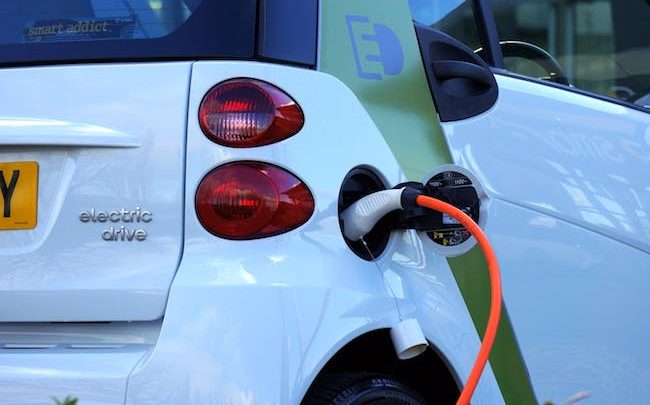Why electric car sales are booming in Norway

By Adrian Johansen
In 2017, The New York Times referred to Norway’s environmental policies as a “paradox.” This term was chosen to describe how the popularity of electric and hybrid vehicles in the Scandinavian country clash with one of its biggest exports: oil. Researchers claim that the reduced emissions of electric vehicles can’t possibly counteract the emissions from Norway’s oil exports.
That fact hasn’t reduced the country-wide demand for electric vehicles in 2019, however. Nearly half of the vehicles sold in Norway between January and June 2019 were electric models. Norway is the global per-capita leader when it comes to electric vehicle sales, with Tesla standing out as the top-selling brand.
Time will tell if electric vehicle sales in Norway will continue on a similar trajectory into the future. For now, it’s clear that Norwegians are serious about reducing their environmental impact. Will that steadfastness carry over into the crude oil industry? And will other countries and automotive technology be able to keep up in terms of reducing emissions?
Norway’s Status as an Environmental Leader
Norway is considered a global leader where sustainability is concerned, for more than just its abundance of electric vehicles. In 2016, the country received a Global Standard-Setter award from the Rainforest Alliance for its efforts in helping to protect the world’s tropical forests. And earlier this year, Norway proposed an amendment to the Basel Convention, a 1989 international waste trade agreement designed to reduce hazardous waste dumping.
Yet Norway’s efforts towards sustainability and environmental stewardship are indeed contradicted by the amount of crude oil produced in the country. In 2018, Norway exported $33.3 billion worth of crude oil and ranks in the top 10 crude oil producing nations worldwide.
The good news is that change may be on the horizon: Oil production in Norway fell by 6.3% between 2017 and 2018. Production is expected to drop by a further 4.7% in 2019. Those reduced numbers represent a 30-year low. Coupled with high electric vehicle sales, an oil production decrease could further compound Norway’s high environmental standards.
Perks of Electric Vehicles and Hybrids
Electric cars operate via battery packs that are charged at designated electrical sources. They also don’t require oil to maintain, significantly cutting down an individual’s fossil fuel consumption.
It’s important to note that electric cars aren’t completely emission-free, however. And in some areas, it may be difficult to find charging stations. Generally speaking, electric vehicles are also more expensive than traditional gas guzzlers.
But the pros of owning an electric vehicle, in Norway or elsewhere, vastly outweigh the downsides. Electric vehicle ownership perks include cheaper maintenance, faster commutes, and possible tax credits and deductions. In Norway, electric cars are permitted in bus lanes and receive toll road discounts. The numerous benefits of owning electric vehicles greatly contribute to their popularity in the country.
As for cost, the Norwegian government waives most taxes on electric vehicle purchases. In an effort to increase electric vehicle sales, other countries have similar incentives in place. In the United States, for example, electric vehicle owners may qualify for the Qualified Plug-In Electric Drive Motor Tax Credit. The credit is reserved exclusively for plug-in electric vehicles.
Environmentally Friendly Vehicle Innovations
Since financial incentives may drive electric vehicle sales, other countries besides Norway and the U.S. are making attractive offers to prospective buyers. Recently, India threw its hat to the ring. Around 2,000 electric vehicles are sold in India on an annual basis. That number pales in comparison to Norway’s electric vehicle sales, despite India’s much larger population.
Thus, in an effort to increase sales numbers, the Indian government is offering a sizeable income tax deduction on electric vehicle purchases. Taxation rates were also reduced to 5%, compared to the 28% GSV tax imposed on SUVs. It’s unclear whether more charging stations will be built to accommodate an increased number of electric vehicles in the country. What is clear, however, is that India is making the reduction of emissions a high priority, much like Norway.
And while electric cars are becoming increasingly popular across the world, they aren’t the only vehicle innovation in recent years. Self-driving cars are set to hit the roads soon, thanks to artificial intelligence (AI), which is poised to transform transportation on a global scale.
According to Ohio University, “AI can be used to analyze commuter behavior, sentiment, suggestions, and commuting patterns, all of which can help predict accidents, alert emergency medical professionals, provide real-time feedback to drivers, and adjust shipping routes to simplify distribution networks.” AI technology may also help to reduce emissions by controlling speed and improving fuel efficiency.
Final Thoughts
In Norway and across the world, self-driving cars, AI technology, and electric vehicles are set to change how we drive well into the future. And by providing incentives towards environmentally friendly vehicle purchases, perhaps other countries can follow Norway’s lead towards greater self-sufficiency.






